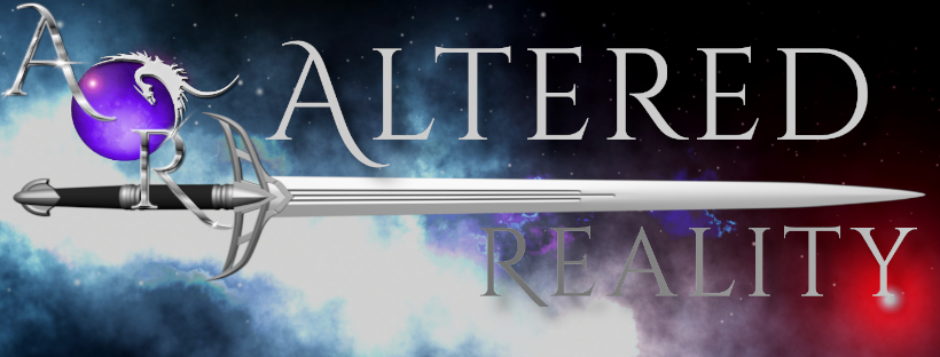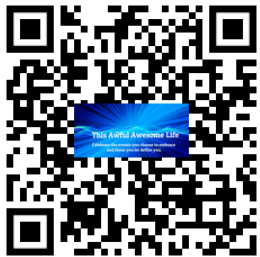The Ring Reclaimed
Jeffrey Greene
On a rainy October evening more than twenty years ago, two hikers traveling in opposite directions on the Appalachian Trail in northern Georgia stopped for the night in one of those doorless log shelters provided by the Park Service at intervals all along the more than two thousand miles of the trail. After their respective meals, the two men sat across from one another in the small, dusty room, a tiny propane lantern hissing softly between them as they talked and sipped strong black tea spiked with a little bourbon provided by the older man. Rain drummed steadily on the log roof and cascaded from the overhang, but it was a mild, if unusually dark, night and there was no need for a fire, which, along with their full stomachs, pleasantly tired muscles and potent tea, made for a mutually expansive mood.
The younger man introduced himself as Alan Schusterman, a recent college graduate from Florida who had been hiking alone since June, having started at the trailhead at Mount Katahdin, Maine. He told the other man, Dr. William Pettit, a retired psychiatrist from Ithaca, New York, that he was only three to four days’ hike from Springer Mountain, the southern trailhead and the achievement of his goal to hike the entire Appalachian Trail. He accepted Dr. Pettit’s congratulations with thanks, but added that after five months of living outside, he had mixed feelings about returning to the suburbs.
“To be honest,” he said, “I’m not sure I want to go back to regular showers, bad traffic, and long lines at the movie theater.”
The doctor smiled and nodded, his gray-stubbled face bobbing in and out of the lantern’s small zone of light. He was a compact man in his mid-sixties, with sparse gray hair, an angular, deeply-lined face, and a large, oar-shaped nose with a rather distinguished bump on the bridge. His baggy brown eyes were restless and intense, though friendly, and narrowed when he stared directly at Alan, as if he were peering at him through dense fog or smoke.
“I hiked the entire trail myself in 1952,” Dr. Pettit said, sipping his tea. “And I’ll admit that it only deepened my appreciation of hot showers and warm beds. But yes, I can imagine a person capable of loving this trail so much that he might abandon the indoor world completely, learn to live off the land, using the shelters in rain or snow. In fact, I met someone on Roan Mountain during my hike who may have been a kind of nomad of the trail.” He raised his flask inquiringly and Alan nodded, holding out his cup as the doctor poured a generous shot.
“You met someone who lived year-round on the Appalachian Trail?” Alan asked, smiling at the idea.
“I can’t say for sure if she actually lived on the trail,” the doctor replied.
“She?”
“Yes. At first I thought she was a transient, perhaps mentally ill, who’d probably been hitchhiking where the trail crossed the highway, and followed it to the nearest shelter.” He sipped his tea. “The reason I thought she might be crazy, aside from the fact that she was filthy, a bit wild-eyed and in the woods alone was… well, she had in spades that—how shall I put it?—solipsistic self-assurance that is all-too-frequently seen in schizophrenics. On the other hand, she seemed quite lucid; abnormally so, one might say.”
“I’ve met some interesting types myself,” Alan said. “And you say this happened at the Roan Mountain shelter?”
Dr. Pettit sipped his tea and nodded. “One of the garden spots of the entire trail, as you know, with its three grassy balds. I’d just been discharged from the Army that spring, and wanted to do something adventurous before the long servitude of medical school. Like you, I started in Maine and headed south. It was late August when I reached the Tennessee-North Carolina border, having slogged through four straight days of heavy rain. I was in good shape by then, but you know how heavy a pack can get after hiking all day in the rain, and by the time I reached the Roan Mountain shelter at dusk, I was exhausted. From a distance it had seemed unoccupied, but as I got closer I noticed a bundle of old clothes in one corner that soon became the figure of a woman, curled on her side and facing the wall, asleep. A mud-smeared army blanket concealed all but a waterlogged pair of boots and a greasy mass of the blackest hair. She didn’t move as I changed into dry clothes and hurriedly prepared dinner in the fading light. No other hikers came, and finding that my clumping around didn’t disturb her sleep, I went about my business, though all the time wondering who she could be, why she was traveling without a pack, and whether I should risk falling asleep in the same room with someone who definitely wasn’t your garden variety hiker, who in fact, to judge by her clothes, could either be a drifter, a drunk, or a nutcase, if you don’t me using a technical term.” Both men smiled.
“It occurred to me that she might even be faking sleep, waiting until I was asleep so she could slit my throat and rob me. I considered waking her up, just to know who the hell I was dealing with, but in the end exhaustion overcame paranoia and I fell asleep.
“This may be a damaging admission for a psychiatrist, but I don’t usually remember my dreams. For me, they’re mostly a goulash of the recent and distant past, a senseless jumble of images that fades as soon as I wake up. But that night in the shelter I had a dream that stayed with me. It was very brief and simple, and not at all frightening: I was on a dirt road in an unfamiliar country, a treeless, hilly, desolate place, like the moors of Scotland. Then, without any sense of transition, the way things happen in dreams, there was a woman on the road ahead of me, leading a gigantic horse. It was exaggeratedly tall and thin, with long, spindly legs like a giraffe, and it was clearly ancient, on its last legs. My memory of the woman is more vague. She was fairly tall, though not a giant, and her head was bowed, but I can’t recall much about her face except its rather downcast expression. She seemed like a groom or a servant. The horse couldn’t have been hers, since she wouldn’t have been able to touch the bottom of the stirrup standing on tiptoe, much less mount it, any more than I could have. And yet the horse was saddled. Even in the dream this struck me as significant. It was more picture than plot, and nothing else happened that I can remember.
“I don’t know whether it was the dream itself that woke me up, or some sound in the shelter, but I sat right up, as if someone had touched my face. I’d put my pocket knife under the towel I was using for a pillow, and my hand closed on it as I strained to see in the darkness. Then I heard a rustle of clothing, and groping for my flashlight, I shined it where the woman had been sleeping. I got a shock then: she was awake and sitting cross-legged with her back against the wall, staring intently at me, her dark face framed by an almost frightening mass of black hair. It was so unsettling to wake up and find her wide awake in the dark, that I momentarily forgot my manners, and it wasn’t until she shielded her eyes with one hand, her long fingernails casting spiky shadows on the wall, that I moved the light from her face.
“‘That’s better,’ she said in a low voice.
“‘Sorry,’ I said.
“‘Could you spare a little food?’
“I first put my pants on, then crossed the short space between us and handed her my canteen and a bag of trail mix. She was dressed in well-worn jeans and a loose khaki shirt, and through her dense hair I glimpsed a wide mouth with full lips, large black eyes and a hawk nose. I noticed that she was wearing a single item of jewelry– a heavy gold ring on her right hand, set with an oval, blood-colored stone.
“‘Thanks,’ she said. ‘We don’t need the light, do we?’
“I turned it off and listened in the dark. She ate ravenously, in silence. When she was finished she leaned over and handed back the canteen and the bag, her movements, as well as I could see them in the dimness, conveying a casual grace. ‘Thanks.’
“‘If you want more, let me know,’ I said.
“‘I see you’re a young man of the better sort,’ she said.
“Not sure how to respond to that, I asked where she was heading.
“‘Home,’ she said.
“‘And where’s home?’ I asked.
“‘North.’
“‘I’m being nosy because the only hikers I’ve seen without packs are day hikers,’ I said. ‘I though you might be lost.’
“I saw a glimmer of teeth in the dark. ‘Well, it’s a big universe,’ she said.
“‘Big woods, too,’ I replied. ‘But I guess you’d tell me if you were lost.’
“‘Why? You want to rescue somebody?’
“‘No,’ I said, a little hurt. ‘I’m just curious. You don’t see many women hiking alone.’
“‘Did I say I was hiking?’ she said.
“‘Okay, fine,’ I said, beginning to get irritated. ‘Just trying to make conversation.’
“‘Oh, conversation,’ she said. ‘Then let’s talk about your dream.'”
“This was my second shock of the evening. ‘Dream?’ I said, though I knew perfectly well what she meant, because the dream had been so simple and vivid that I could almost reach out and touch it.
“‘She leaned forward, her intense black eyes staring into mine. ‘Don’t play dumb with me,’ she said. ‘This little picture around us…’ She indicated with a contemptuous gesture the shelter and the dripping forest. ‘This is like the newspaper, to be read and forgotten over breakfast. But a dream, a true dream like the one you just had, is a poem from the Gods, written for you alone. So much more real than this paradise of maggots.’
“‘How did you know I had a dream?’ I asked.
“She laughed, a deep-throated sound that was not in the least infectious. ‘I’ve always preferred poetry to journalism,’ she said. I had to smile at that, and she smiled too, as if we were enjoying a joke together. ‘Now tell me your dream.’
“I told her, and she listened as if her life depended on reciting it back word for word. There was this quality about her, that I’ve searched for ever since and never found: her face—or was it just her eyes, her expression?—was like a flame consuming everything inessential. Her unkempt nails, her ragged clothes, her dirty hair, where she came from, where she was going, how she lived from day to day like the rest of us: all these trivial questions that I’d wanted to ask from the moment I saw her, were forgotten. Our positions had reversed very quickly: I was the poor, confused beggar, not her. She was royalty of a different sort.
“She was silent for several minutes. Finally, I asked: ‘Do you know what it means?’
“‘Not for me to say,’ she said. ‘But this meeting was no accident. We’re here together because the roads running through our dreams intersected. You needed me to remind you of the importance of your dream, and I needed you because in my dream, I was thirsty .’
“‘Oh, I thought I was here because it was raining and the trail led this way,’ I said sarcastically, put off by her glib mysticism.
“‘I think we’re somewhat different,’ she replied. ‘You think truth can be found secondhand, in books or a classroom, that nothing is required of you beyond the ability to assimilate it. For me, there is no truth without blood. I must grab the blade to find it.’ She stood up suddenly in one fluid motion, and in the darkness her hair seemed to writhe around her face. ‘Think about your dream,’ she said. Then she took off her gold ring, and leaning over me, so that her hair brushed my arm, she dropped it in my hand. ‘As long as you wear this, you won’t forget it,’ she said. ‘It’s the best I can do for you.’
“Not knowing what else to say, I thanked her.
“‘It’s not a gift,’ she said, backing away from me. ‘I’ll come back for it, and on that day we’ll talk again about your dream.’ She turned and stepped into the rainy darkness, and was soon swallowed up by it. The skin of my arm tingled where her hair had touched it.
“I examined the ring closely. It appeared to be made of solid gold and was very heavy, with a polished red stone shaped like a tiny egg set in mouth-like clasps on either side. On closer inspection, the clasps proved to be twin serpents with distended mouths trying to devour the egg from each end, their tangled coils forming not only the hollow in which the stone rested, but the ring itself.”
“You’re describing the ring you’re wearing right now,” Alan said, pointing to the ring on the doctor’s right hand.
“So I am.” He held it up to the light. “I put it on soon after she left. It slipped on easily enough, but when I tried to take it off, it wouldn’t budge. After I’d tried everything short of cutting it off with a hacksaw, I began to like it. It hasn’t been off since that night.”
“Well, you’ve remembered the dream, so I guess it served its purpose,” Alan said, smiling. “Do you think she put a spell of memory on it?”
The doctor laughed. “She must have known it wouldn’t be necessary, since I had only to look at the ring to recall every detail of the short time I spent with her, including the dream. Anticipating your skepticism, I’ll agree that she did nothing supernatural, since her knowing I’d had a dream could just as easily have been a guess, maybe after hearing me talk in my sleep. Aside from a certain fearlessness, an aversion to bathing and trimming her nails, and a fascination with dreams, one could say that she was no different from anyone else. Yet here I am, all these years later, still talking about her. I guess in a way I fell in love with her, or at least with what she represented. I’m not sure what to call it: spiritual audacity, maybe, or having the kind of heart that thrives inside of flames instead of being warmed by them. Now whether she burned with true insight or mere force of personality, I don’t know, but for most of my life I’ve measured myself unfavorably against that fire. Which is not to say I didn’t struggle, in my muddling way, with the meaning of the dream; I did, for many years. It’s an irony I’ve never shared with my colleagues, that a single hour in the company of a woman whose name I never learned had more to do with my becoming a psychiatrist than all the years with graybeard attending physicians put together.” He drained the last of his tea and poured a dash of straight bourbon into his cup, then offered some more to Alan, who nodded and held out his cup. They drank for a moment in silence.
“Well, after all this, I have to ask what you made of the dream,” Alan said. “Or did you decide that sometimes a woman leading a giant, decrepit horse is just a woman leading a giant, decrepit horse?”
The doctor shook his head. “The process of thinking about it wasn’t continuous, of course. It came in fits and starts, sometimes coinciding with personal and professional crises, sometimes when I was happy, sad, or bored, or right before falling asleep, even in the middle of listening to one of my patients describing a dream. Then years might pass before it would come back, burrowing up from the depths. I painted pictures of it, papering my study with different views of the same scene, or emphasizing certain aspects over others. I tried Freud on for size, then Jung. If, as Freud believed, all dreams are the expression of unconscious wishes, I asked myself, what was I wishing for on that lonely road in an unknown country? Who was the horse’s absent rider and why wasn’t he—or she—in the dream? Was he my father, not yet dead at the time, but ill, and if so, was I wishing him dead by making his horse riderless? Perhaps the absent rider was not my father but God the Father, and his huge, enfeebled horse was a symbol of my dying faith. Having already killed God with my science, there remained only the vestiges of childhood religion, the still-running clock of the Church, ticking off its round of rituals and ceremonies long after the clockmaker has died.
“As you can see, the more I thought about it, the more complex that apparently simple picture became. If true dreams are ‘poems from the Gods,’ as the woman had said, which I take to mean that certain rare dreams have the brevity and weight of poetry, using image and incident rather than words, then this opens the door to multiple interpretations. Occurring to me over half a lifetime, they ranged from the grandiose to the absurd. I considered and rejected the notion that the absent rider was one of the Four Horsemen of the Apocalypse, or even my own death, but rather liked the idea that the dying horse represented the moribund Western film genre, which was itself a metaphor for the adventurous yearning for new horizons that fueled the American expansion. As we moderns become ever more urban and sedentary, we grow more nostalgic, perverse and inward in the same proportion. The unhorsed rider might have been my own resurrection of the Lone Cowboy, a role I aspired to as a child. Instead, I grew up, then grew old listening to people describe their obsessions and neuroses. You can’t imagine how sick of sick people I became. At some point in mid-career it occurred to me that I was a fraud, pretending to care when all I felt was pity, contempt, weariness, or an uneasy mixture of all three.
“After many years I realized that I was going around in circles, chasing my own tail. There were failed marriages along the way, children who grew up and scattered in all directions, prostate cancer, arthritis, cataract surgery—the usual stuff. But through the years there remained the constant reminder of the ring on my finger, and the woman’s promise to reclaim it. I told you I’ve searched for the fire she came to represent and never found it. At some point I realized that what I really wanted was to see her again, if only to find out how my older self would judge her. I still believe in literary and artistic magic, and in the overwhelming, ungraspable fact of Existence itself, but the muddy current of everyday life has led me farther and farther away from the more arcane magic that may or may not have taken place in that tiny room in the mountains so long ago.” The doctor drained his cup and poured them both another finger of bourbon.
“Is that why you’re here now?” Alan asked. “Hoping to meet her again?”
“Partly, yes,” Dr. Pettit replied. “And partly to recapture—if it’s still possible—some echo of what it felt like to have an adventure.”
“May I assume, then,” Alan said, adjusting his back against the wall, “that in thirty-five years you came to no definite conclusions about what the dream meant, if in fact it meant anything other than what it was—a picture that appeared in your mind while you were sleeping?”
“If you’re asking whether I experienced some Eureka moment of pure clarity, then no, I guess I’d have to say I failed.”
“I wouldn’t say failed,” Alan said. “Remember, the woman asked you to think about the dream, not figure it out. You’ve certainly done that, more than most people would. And who’s to say any dream has just one meaning? Didn’t that theory go out of fashion along with Freud?”
“Maybe. But I was hoping for something more definite, the sense of a key turning in a lock, an inner door opening. Unfortunately, I dreamed no sequels: the dream woman never spoke to me, and no ten-foot-tall cowboy mounted the horse and rode into the sunset. I’m still here, as muddled as I ever was.”
“I don’t know you well enough to agree or disagree with that,” Alan said. “But if you don’t mind me putting in my two cents…?”
“Not at all.”
“Well, this is just an idea, but what if the key character in the dream is the woman, not the horse?”
Dr. Pettit nodded impatiently. “I’ve thought about her, of course, quite often. But the vagueness of her face, and the fact that she never made eye contact, led me almost from the beginning to discount her as the dream’s central image. And the giant horse is so much more memorable, so suggestive of the being capable of riding it, who also evokes potent, invisible mysteries, things so far beyond human comprehension that we can’t even see them, much less understand them. The horse was a thing of extremes: extremely large, extremely old, while the woman occupied in every sense—size, age, looks—the great middle way. In a word, mediocrity, a condition that I dreaded as a young man, that I still dread, even though I realized long ago that I’m no different from the rest. Time cuts us all down to size, and youth is the only force strong enough to resist it. For a little while,” he added with a sour smile.
Alan laughed. “So what you’re saying, doctor, is that the woman leading the horse was beneath your notice because she symbolized everything you fear and despise in yourself. Is that a fair statement?”
“Well, no, not exactly. In a dream with so few characters, nothing is unimportant. I just thought that, since she seemed to be a servant or a groom…”
“Aren’t grooms always male?” Alan asked. “Or am I mistaken?”
“Maybe in the real world,” Dr. Petit said. “Not in my dream.”
“All right, let’s follow that thought for a moment,” Alan said. “Your dream woman was leading a horse that she obviously couldn’t ride, that seemed to be saddled for a giant. Her head was bowed and her eyes downcast, therefore you assumed that she was a groom or a servant. But books and movies had taught you since childhood that grooms are either young men in sackcloth with Prince Valiant haircuts or middle-aged Englishmen with riding caps and a cockney accent, so why would you dream a woman in that role? The stuff of dreams is the stuff of this world, and however bizarre they may seem, isn’t there always a thread of internal logic to them? So, if a woman leading a giant’s horse is not a groom, what else could she be? The giant’s wife? His daughter? Has she stolen the horse, or does it belong to her? Maybe she’s a character out of a myth or a fairy tale, a lower-echelon fairy, perhaps, who’s been charged by her superiors in Fairyland with keeping this magic horse in a magic stable, feeding and caring for it through the centuries, and sadly watching it grow old as she waits for the hero of the story to come questing, the inevitable handsome prince who must prove himself worthy of riding it.
“But let’s say it’s almost too late. By now the horse is ancient, since no one worthy has come in all these centuries, and in the meantime Fairyland itself has retreated to remote and forgotten corners of the world, which might include certain regions of the unconscious mind, accessible only to those willing to undergo the rigorous training necessary for the journey. Like psychiatrists, for example. Maybe the horse will die of old age before the prince happens along, and this sense of sadness and futility, mingled with her inbred obedience to the chain of command in Fairyland, is what you see in the woman’s face. What you don’t see, perhaps, is the hope hidden behind the downcast expression. Here you are standing before her on a lonely road in a dream country where only two people can ever be at any given time: the woman leading the horse and the questing prince, who may or may not be worthy of riding it. She waits for you on the road as she’s waited for centuries, expecting nothing but hoping, always hoping. She can’t look up at you because the fairy queen has forbidden her to help the seeker in any way. This, as you remember from your Brothers Grimm, is the unbreakable law of the fairy tale: the hero is given magic weapons to defeat evil and win the love of the princess, but he must wield them himself. So this fairy, elf, witch, or whatever she is, keeps her eyes averted, and the horse waits, old and tired, not winged or eternally young like Pegasus, but mortal, as magic is mortal, as the Earth is mortal. A dream giant doesn’t need boots as big as wine barrels to convey the idea of stature. There are giants of soul, intellect, talent, bravery, whose horses would throw off anyone they sensed was unfit to ride them.”
While listening to the dim figure seated across from him, Dr. Pettit’s face had gone pale. He stared hard at the young man, licking dry lips, his eyebrows drawn together, his fingers nervously rubbing the stubble on his cheeks.
“As a young man,” Alan went on, “you aspired to greatness, but your trail was not as well-marked as it is for those special few, and after many years you saw yourself meandering, back-tracking, losing precious time. You became ‘no different from the rest,’ a muddled, groping Everyman, and gradually your youthful aspirations curdled into the regrets of old age. But in the back of your mind, you had stored a picture, a snapshot, of a place beyond the clutter and confusion of this world of sleepwalkers, where a woman who may be a witch always waits for you, with a horse that is more or less than a horse, waiting for its master to remember who he really is. If you don’t try to ride him he will never be ridden, because he was bred for you alone and will die when you die. The sky, the hills, the road, the woman, the horse: all of it is part of the William Pettit who is always awake and alive, shouting ‘wake up!’ to the William Pettit who is always asleep and dying.”
“Then why was the horse old, even when I was young?” Dr. Pettit asked, almost whispering.
“Maybe the dream was trying to tell you that it was almost too late for you to become the person you were meant to be. It’s always almost too late, from the moment we begin to discount the importance of our dreams. Of course, these are only opinions. Like you, doctor, I lack Freud’s gift of certainty. In fact, the only thing I am certain of is that you have something that belongs to me.”
Alan held out his hand, and in the uncertain light Dr. Pettit saw it change and darken. He looked up and found the woman of his memories seated in the young man’s place. Her hair was still wild and thick, and her clothes were the same, but it was as if she had come through a blizzard, so white was her hair and brows. The only blackness left in her face was her eyes. He stared at her, too shocked to speak, until he understood what she wanted, and held out his right hand. One hand closed hard on his wrist and the scythe-like nails of the other reached for the ring and pulled. He felt no pain, only a sharp, cold sensation, and it was a second before he realized that his finger was gone, the stump bleeding profusely.
“No truth without blood, remember?” she said, gazing at him with something like affection as she slipped the ring on her finger, then casually dropped his severed digit into her shirt pocket. “And we’ll shed oceans more before we wake up.” She stood up, her movements slower and less fluid than they once were, but no less decisive. “Thanks for the whisky,” she said, then, hoisting her pack and shrugging it on, she stepped carefully off the platform and strode into the darkness, whistling a tune he didn’t recognize as she picked up the trail heading south.
It seemed to him that he could still hear her gradually fading whistle, long after the bleeding had stopped.
![]()






